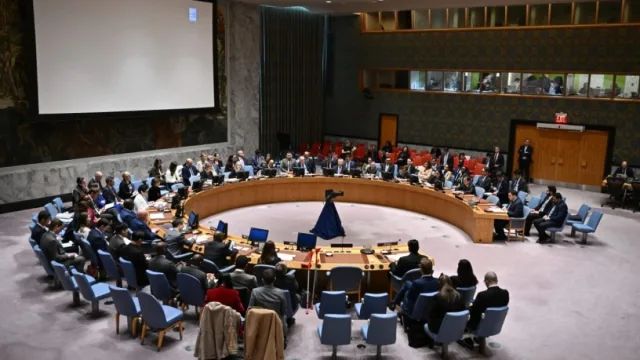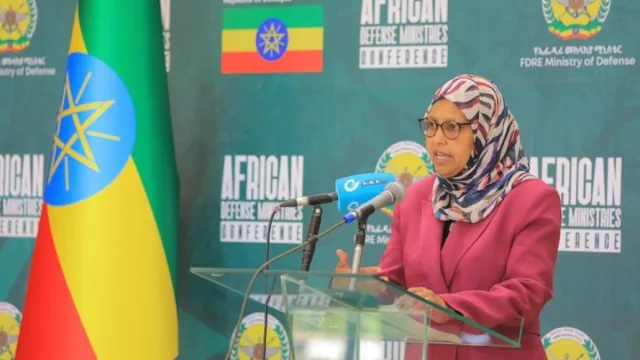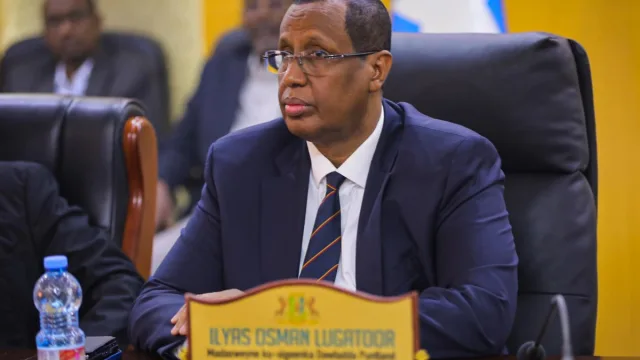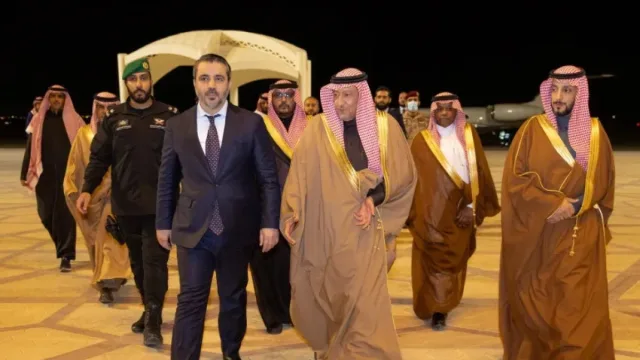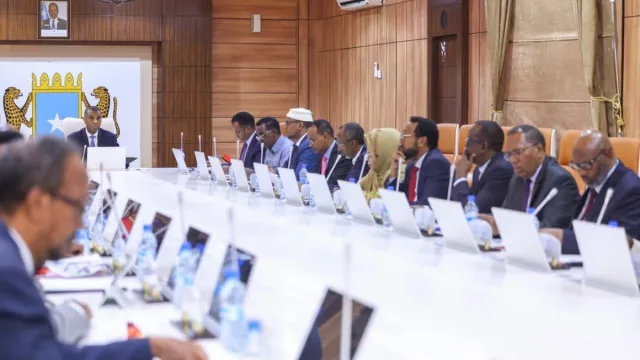Somali rebels on Monday vowed to avenge a deadly Kenyan air raid as the two countries’…
![]()
Somali rebels on Monday vowed to avenge a deadly Kenyan air raid as the two countries’ prime ministers pledged to defeat the “common enemy” and called for international support.
While both Kenya and the Somali government are battling the Al Qaeda-linked Shebab insurgents, Nairobi’s decision to send troops and warplanes across the border had caused unease in Mogadishu.
A raid on a southern Somali town Sunday killed at least five civilians, including three children.
“Kenya has brutally massacred civilians already displaced by hardship … We will ensure that Kenya mourns more than we did,” a regional Shebab official Sheikh Abukar Ali Ada told reporters.
Kenyan security forces say they have stepped up surveillance and last week a 28-year-old Kenyan was jailed for life after confessing to being behind a grenade attack in central Nairobi that killed one and wounded several.
Nairobi at first insisted it hit a Shebab target on Sunday but witnesses and aid sources said one bomb ploughed into a camp of displaced civilians.
Later on Monday, Kenyan army spokesman Emmanuel Chirchir said the deaths were caused after a Shebab vehicle mounted with an anti-aircraft gun was hit, and then drove into a camp of civilians “on fire and laden with explosives.”
Doctors Without Borders said at least five civilians were killed in the air raid, which struck a camp hosting 9,000 internally-displaced Somalis in Jilib.
“We would like to minimise any collateral damage that happens, but incidents can happen,” said Abdiweli Mohamed Ali, the prime minister of Somalia’s Western-backed Transitional Federal Government (TFG).
“Any loss of life of a Somali is a tragic loss to all of us,” Ali told reporters in Nairobi, after meeting with his Kenyan counterpart Raila Odinga.
Kenya’s military onslaught followed the abduction of four foreigners in recent weeks, including two Spanish aid workers from the Dadaab camp hosting almost half a million refugees, mainly Somalis who have fled conflict and famine.
The two prime ministers said the Shebab was a common enemy.
“The Somalia government supports the activities of the Kenyan forces, which are being fully coordinated with the TFG of Somalia and being carried out in the spirit of good neighbourliness and African unity.”
“This threat must be fought jointly by the two nations with support from the international community,” it added, calling for international “logistical and financial support” to blockade Kismayo, a strategic rebel-held port.
Last week, Somali President Sharif Sheikh Ahmed said he opposed Kenya’s raid, insisting that his government, which has little control over Somalia, would accept only military training and logistical support.
While Kenya has ruled out negotiation with the Shehab, Somalia’s prime minister said talks were possible for all groups who laid down their guns.
“We don’t close the door for those who renounce violence,” Ali said. “They are Somalis, they are our kids who have been brainwashed.”
After carefully avoiding being dragged into the Somali chaos, Kenya admitted on October 16 it had sent troops into Somalia, a country whose anarchy has defeated all foreign interventions and peace efforts for two decades.
Kenya’s military chief General Julius Karangi told reporters Saturday that the forces will pull out “when the Kenyan government and the people of this country feel they are safe enough.”
The move is aimed at preventing further attacks on its territory by the Shebab militia, which it blames for a string of kidnappings of foreigners which threaten to cripple Kenya’s crucial tourism industry.
However the air and land operation has heightened the security threat inside Kenya, with the Shebab, who deny any involvement in the kidnappings, vowing to strike in the heart of its dearest interests.
Kenya has dismissed some Somali concerns that it wants to carve out a border buffer zone, and instead called on Monday for additonal African Union forces — currently based only in Mogadishu — to move into areas cleared of the Shebab.
Ugandan and Burundian troops make up the more than 9,000-strong AU force, which protects the weak government in the war-torn capital.
Source: AFP
